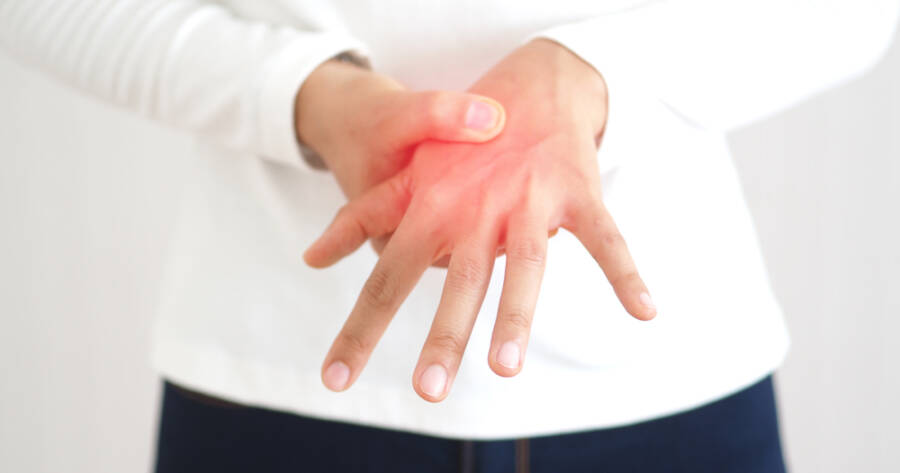Neuropathy can lead to debilitating symptoms such as pain, numbness, and weakness. From medication to alternative therapies, choosing the right approach requires careful consideration. So, let’s explore the different treatments on the path to an informed decision.
Understanding Neuropathy
Before diving into treatment options, it’s crucial to understand what neuropathy is and its underlying causes. Neuropathy occurs when peripheral nerves, responsible for transmitting signals between the brain and the rest of the body, become damaged. This can disrupt communication between the nervous system and the body, leading to various symptoms that can significantly impact daily life.1
Common causes of neuropathy include diabetes, where high blood sugar levels can damage nerve fibers, and autoimmune disorders like lupus or rheumatoid arthritis, which can trigger nerve inflammation. Other potential causes include infections, inherited disorders, and exposure to toxins. Recognizing the root cause of your neuropathy is essential, as it can significantly influence your treatment options.
Traditional Medical Treatments
When it comes to treating neuropathy, traditional medical interventions often serve as the first line of defense. Physicians may prescribe medications aimed at alleviating pain and discomfort. Commonly prescribed options include:
- Antidepressants: Certain antidepressants, such as amitriptyline and duloxetine, can help manage nerve pain by altering the way your brain processes pain signals.
- Anticonvulsants: Medications like gabapentin and pregabalin are frequently used to reduce nerve-related pain.
- Topical treatments: Creams containing capsaicin or lidocaine can be applied directly to affected areas for localized relief.
Additionally, if neuropathy is caused by an underlying condition, treating that condition can help alleviate symptoms. For instance, managing blood sugar levels in diabetic patients can slow the progression of neuropathy.2
Physical Therapy and Rehabilitation
Physical therapy is another effective approach for managing neuropathy symptoms. A licensed physical therapist can develop a personalized exercise program designed to improve strength, balance, and coordination. This is especially important for individuals experiencing weakness or instability due to neuropathy.
Therapeutic exercises can enhance circulation, reduce stiffness, and promote overall physical well-being. Additionally, physical therapy can help patients learn strategies to cope with symptoms and improve their quality of life. Techniques like electrical stimulation and ultrasound therapy may also be employed to aid nerve function and reduce pain.
Alternative and Complementary Therapies
For those seeking alternative approaches to manage their neuropathy, several complementary therapies have shown promise. While these treatments should not replace conventional medical care, they can provide additional relief and support overall health. Some popular alternative therapies include:
- Acupuncture: This ancient Chinese practice involves inserting thin needles into specific points on the body, which may help relieve pain and improve nerve function.
- Massage therapy: Therapeutic massage can enhance circulation, reduce tension, and alleviate pain associated with neuropathy.
- Chiropractic care: Spinal adjustments and other chiropractic techniques can help relieve pressure on nerves and improve overall nervous system function.
Before pursuing alternative therapies, it’s important to consult with a healthcare provider to ensure they complement your existing treatment plan.
Lifestyle Changes for Neuropathy Management
Incorporating healthy lifestyle changes can significantly impact your neuropathy symptoms. Diet, exercise, and stress management play crucial roles in managing nerve health.
- Diet: A balanced diet rich in vitamins and minerals, particularly B vitamins, can promote nerve health. Foods high in antioxidants, such as fruits and vegetables, can help reduce inflammation. Additionally, reducing alcohol intake and avoiding harmful substances can prevent further nerve damage.
- Exercise: Regular physical activity is vital for overall health and can help mitigate neuropathy symptoms. Low-impact exercises, such as swimming, walking, or cycling, can improve circulation and reduce discomfort. Always consult with a healthcare provider before starting a new exercise regimen, especially if you have existing health concerns.
- Stress management: Stress can exacerbate neuropathy symptoms, making it essential to find effective ways to manage stress. Techniques such as mindfulness meditation, yoga, and deep breathing exercises can promote relaxation and improve emotional well-being.
The Importance of a Multidisciplinary Approach
Choosing the right neuropathy treatment often requires a multidisciplinary approach. Collaborating with various healthcare providers, including neurologists, physical therapists, and nutritionists, can provide a comprehensive treatment plan tailored to your unique situation.
Keep in mind that neuropathy is often a complex condition influenced by multiple factors. As such, a combination of treatments may be necessary to achieve the best outcomes. Regular follow-ups and open communication with your healthcare team can ensure that your treatment plan is continually optimized based on your progress and evolving needs.
Learn More Today!
Selecting the right approach for neuropathy treatment is a critical step toward regaining control over your health and well-being. With a variety of options available—ranging from traditional medications to alternative therapies and lifestyle changes—patients have the opportunity to create a personalized plan that addresses their specific needs.
By understanding your condition, exploring all treatment avenues, and collaborating with healthcare professionals, you can make informed choices that lead to improved quality of life. Remember, effective management of neuropathy is not just about alleviating symptoms but also about enhancing overall health and resilience. Take charge of your journey toward a pain-free, vibrant life.
